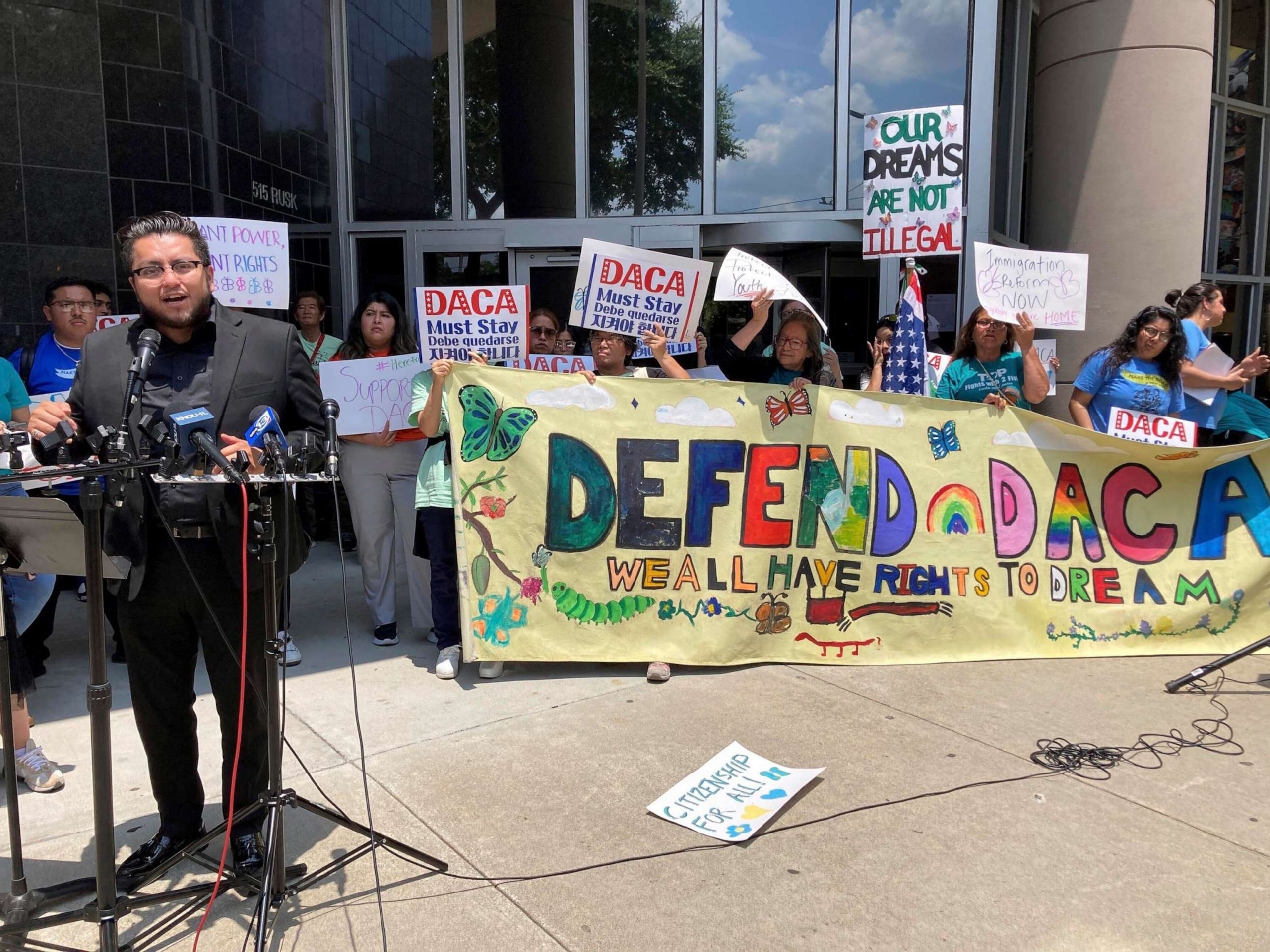In a recent ruling, a federal judge declared the Deferred Action for Childhood Arrivals (DACA) program illegal but decided to maintain existing protections for its beneficiaries. This decision has sparked a significant debate and raised questions about the future of DACA and the fate of hundreds of thousands of young immigrants who rely on the program for their livelihoods.
DACA, introduced in 2012 by the Obama administration, provides temporary protection from deportation and work permits to undocumented immigrants who were brought to the United States as children. The program has been a lifeline for approximately 650,000 individuals, often referred to as “Dreamers,” who have grown up in the United States and consider it their home.
The recent ruling by U.S. District Judge Andrew Hanen in Texas came as a blow to many DACA recipients and immigrant rights advocates. Hanen argued that the creation of DACA exceeded the executive branch’s authority and violated the Administrative Procedure Act, which governs how federal agencies can establish regulations. However, he also acknowledged that abruptly terminating the program would cause significant harm to those currently protected by DACA.
The judge’s decision to maintain existing protections for DACA recipients offers some relief to these individuals, at least for now. It means that current beneficiaries can continue to renew their status and work permits, allowing them to pursue education, employment, and contribute to their communities without fear of deportation. However, the ruling does not allow new applicants to join the program, leaving thousands of potential beneficiaries in limbo.
Supporters of DACA argue that the program is crucial for young immigrants who have grown up in the United States and know no other home. They argue that these individuals are contributing members of society, often pursuing higher education or working in essential industries such as healthcare, education, and technology. Many Dreamers have become doctors, teachers, engineers, and entrepreneurs, making significant contributions to their communities and the U.S. economy.
Opponents of DACA argue that the program was implemented unlawfully and that it encourages illegal immigration. They believe that DACA should be terminated entirely, arguing that it is the responsibility of Congress to address the issue of immigration through legislation. Some critics also claim that DACA recipients take away job opportunities from American citizens and legal residents.
The recent ruling has put pressure on Congress to find a permanent solution for DACA recipients. The Biden administration has expressed its commitment to protecting Dreamers and has called on Congress to pass legislation that would provide a pathway to citizenship for DACA recipients and other undocumented immigrants. However, finding a bipartisan consensus on immigration has proven challenging in the past, leaving the fate of DACA uncertain.
In the meantime, immigrant rights organizations and advocates are urging eligible individuals to continue renewing their DACA status to maintain their protections. They are also pushing for legislative action to secure a more permanent solution for Dreamers, highlighting their contributions to society and the urgent need for comprehensive immigration reform.
The ruling by Judge Hanen has brought attention to the legal complexities surrounding DACA and the urgent need for Congress to address the issue. It underscores the importance of finding a long-term solution that provides stability and certainty for DACA recipients, allowing them to fully contribute to their communities and pursue their dreams without fear of deportation.



